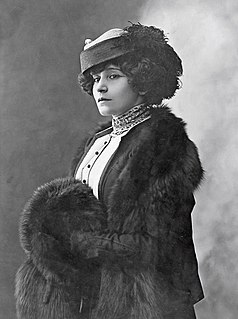A Quote by Margaret Stohl
Related Quotes
Kids not only need to read a lot but they need lots of books they can read right at their fingertips.They also need access to books that entice them, attract them to reading. Schools...can make it easy and unrisky for children to take books home for the evening or weekend by worrying less about losing books to children and more about losing children to illiteracy.
When you talk to people about the books that have meant a lot to them, it's usually books they read when they were younger because the books have this wonder in everyday things that isn't bogged down by excessively grown-up concerns or the need to be subtle or coy... when you read these books as an adult, it tends to bring back the sense of newness and discovery that I tend not to get from adult fiction.
The most important thing for a writer to do is to write. It really doesn't matter what you write as long as you are able to write fluidly, very quickly, very effortlessly. It needs to become not second nature but really first nature to you. And read; you need to read and you need to read excellent books and then some bad books. Not as many bad books, but some bad books, so that you can see what both look like and why both are what they are.
I never look at fashion magazines. I find them incredibly boring. To me, reading a fashion magazine is the last thing I need to do. I've got books I need to read. More people should read books. It's the most concentrated experience you can have. You know, all those incredible geniuses concentrated their lifetimes' experiences in books. It's much better than chattering away to somebody who's never read anything and knows nothing at all.
The man who doesn't read good books has no advantage over the man who can't read them. It is said that leaders are readers. However if they read trashy magazines for the majority of their time and they never run with the information that they glean from resourceful books, then they may as well have not taken any time to read at all. It is easier to stay out than get out.
The best thing about conceptual poetry is that it doesn’t need to be read. You don’t have to read it. As a matter of fact, you can write books, and you don’t even have to read them. My books, for example, are unreadable. All you need to know is the concept behind them. Here’s every word I spoke for a week. Here’s a year’s worth of weather reports... and without ever having to read these things, you understand them.







































